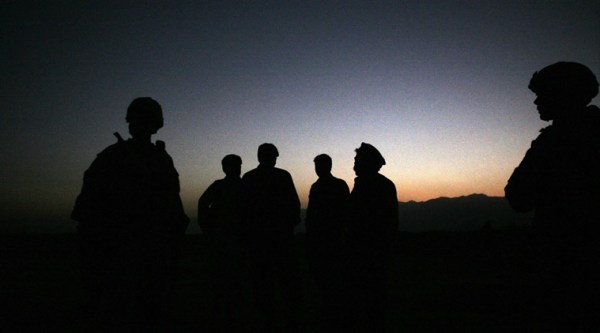Clashing With Kabul
Pakistan is finding it difficult to engage with Afghanistan on the lines it is familiar with

Both the states are suffering from the terrorism they once helped gestate.
After becoming prime minister, Imran Khan received a goodwill message from the president of Afghanistan, Ashraf Ghani. It read like a routine gesture, but both Kabul and Islamabad have reached a point in their deadlocked relationship where they want “real peace”, that is, for the Taliban to end their aggression. Americans have killed the head of the Afghan Taliban in Pakistan with a drone; another American drone has killed the head of Pakistani Taliban in Afghanistan.
Both the states are suffering from the terrorism they once helped gestate. For Kabul, the north-south “national” divide continues to be a decision-making obstacle; for Pakistan, the presence of India in Afghanistan erects a roadblock it can’t go over. The American view of Afghanistan has changed under Trump: It wants to get out after setting up a strategic bulwark against China in the region with India’s help. The new American “special envoy” to Kabul is going to be Zalmay Khalilzad whom Pakistan doesn’t regard as a friend.
Khalilzad, a Pashtun from the northern city of Mazar-e-Sharif, thinks about Pakistan like the other nationalities of the north — Tajiks, Turkmen and the Hazara, etc — who form over 50 per cent of Afghanistan’s population. When he was ambassador in Kabul under the Bush administration, his hawkishness towards Pakistan offended the professional bureaucrats serving in the region.
If you are a non-Pashtun Pakistani in Afghanistan on a business trip, pretend to be from India or you will get roughed up, so offended are the Pashtun Afghans carrying the baggage of rage over the creation of Pakistan that divided the Pashtun nation. (Afghanistan has never really accepted the Durand Line as the frontier separating “the nation”.) Despite Pakistan’s “hospitality” of millions of Afghan refugees over decades, the rancour hasn’t died down. On the other hand, Pakistan has ignored the non-Pashtuns of Afghanistan who would readily accept the Durand Line. Instead, Pakistan opposed the Tajik warlord Ahmad Shah Masud fighting the Pakistan-supported Pashtun warlord Hekmatyar inside Afghanistan.
The US is bogged down and wants to leave. The Taliban refuse to talk to the US but are travelling in the region discussing the conflict. Their attack on Ghazni before Eid left the city helpless for days. Ghani was furious over the incompetence of his 3,00,000-strong army and got his ministers of defence and interior to resign before taking them back; but his chief security officer, Hanif Atmar, had to leave. The Taliban refused the truce he offered, looking forward to a Moscow “peace” meeting on September 4 — it looked so bad to Washington that Ghani had to get it postponed.
The US is not happy with the situation developing in favour of China and Iran and is sending Khalilzad as its troubleshooter. Pakistan has gone from calling Afghanistan its strategic depth to being a victim at the hands of its own Taliban now hiding in Afghanistan. It has also turned to look more closely at the increasingly hostile Pashtun terrorists inside its own tribal belt. Some actions it has taken to clean up the sanctuaries of terror have hurt the local population, now staging protests. However, regular terrorist attacks on the Shia of Quetta and Chinese workers in Balochistan signal “penetrations” that Pakistan can no longer tolerate. Unable to grasp the nettle, it keeps on hinting at the “Indian presence” in Afghanistan.
With Khalilzad “helping” President Ghani in Kabul, Pakistan is going to find it difficult to “engage” with Afghanistan on the lines it is familiar with. Imran Khan is known to be a leader capable of taking tough decisions, but on the Taliban he has learned to be “flexible”. As head of its ruling party, he had to deal with the province of Khyber-Pakhtunkhwa where the Taliban terrorists can kill at will; and has financially supported “religious schools” connected with the killers. His appeal to the Pakistani masses also rests on his pushback panache vis-a-vis the Americans.
His first foreign policy tiff with the US has taken place. More will come as Kabul toughens its stance with help from Khalilzad who wrote in The Envoy (2016): “By the spring of 2003, Pakistan’s double game was undeniable… We had credible reports that it was providing money, arms, and training to insurgents who were crossing the border with impunity to carry out attacks in Afghanistan.”
The writer is consulting editor, Newsweek Pakistan
For all the latest Opinion News, download Indian Express App
More From Khaled Ahmed
- Chanakya In Our TimesIndia’s use of his concepts of isolationism and involvement confounds Pakistan. ..
- Too Close To HomeNaipaul’s observations on South Asia are insulting, but may not all be off the mark..
- The Cast Of KargilMusharraf placed officers who shared his orientation on Kashmir in key positions...












.png)



























No hay comentarios:
Publicar un comentario